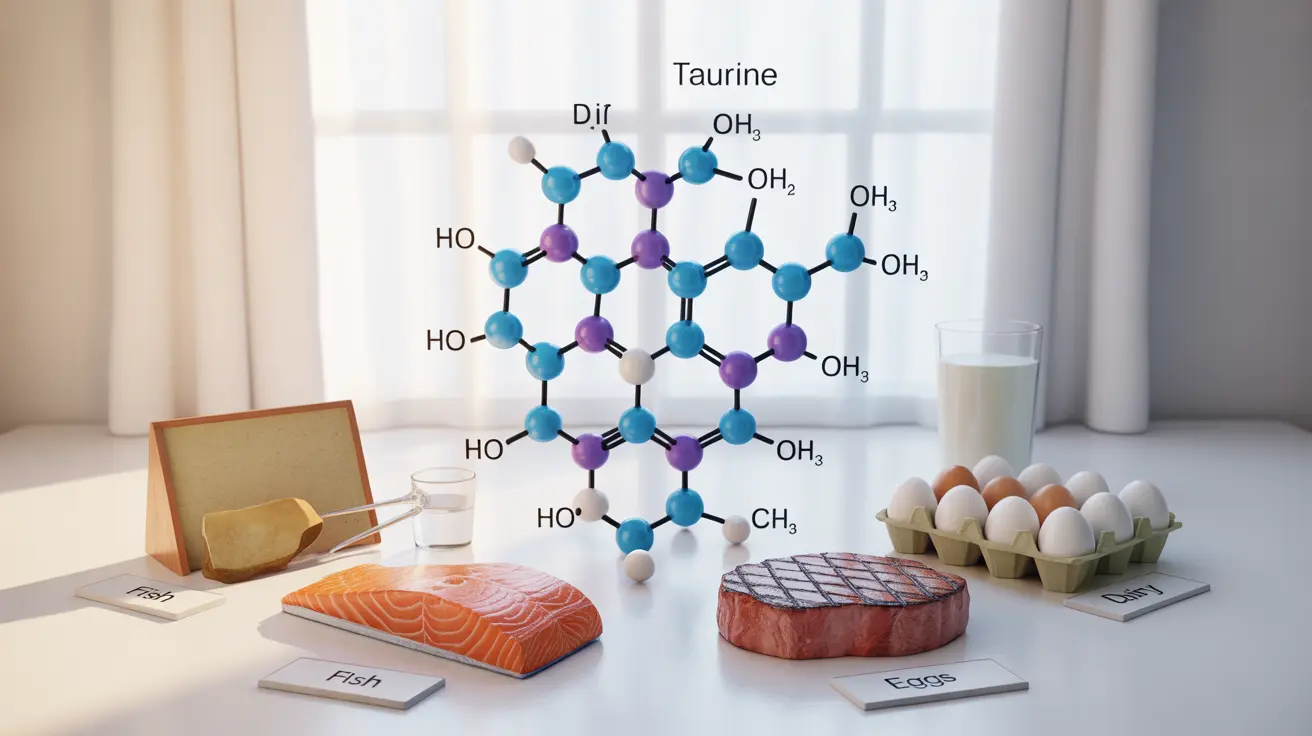Taurine is a powerful amino acid-like compound that plays numerous vital roles in maintaining overall health and wellness. While your body naturally produces taurine, it's also found in various foods and supplements. Understanding its functions and potential benefits can help you make informed decisions about your nutritional needs.
In this comprehensive guide, we'll explore what taurine is, its essential functions in the body, natural sources, and the science behind its potential health benefits. We'll also examine important safety considerations for supplementation.
The Science Behind Taurine
Taurine is technically a conditional amino acid, meaning your body can produce it under normal circumstances. It's particularly abundant in brain tissue, heart muscle, and eyes, where it performs crucial biological functions. Unlike standard amino acids, taurine isn't used to build proteins but instead acts as a regulatory molecule in various bodily processes.
Natural Sources of Taurine
Taurine is predominantly found in animal-based foods, including:
- Fish and seafood
- Meat (especially dark meat)
- Dairy products
- Eggs
Vegetarians and vegans should note that plant-based foods contain minimal to no taurine. However, healthy adults can typically synthesize sufficient taurine from other amino acids, provided they maintain adequate protein intake.
Health Benefits and Functions
Cardiovascular Health
Taurine plays a significant role in heart health by regulating blood pressure, reducing inflammation, and supporting proper calcium handling in heart muscle cells. Research suggests it may help maintain healthy cholesterol levels and support overall cardiovascular function.
Athletic Performance
Athletes and fitness enthusiasts often turn to taurine for its potential performance-enhancing effects. It may help reduce exercise-induced fatigue, improve endurance, and support muscle recovery through its antioxidant properties.
Neurological Function
In the brain, taurine acts as a neurotransmitter and helps regulate various aspects of neural function. It may support:
- Memory and learning
- Mood regulation
- Sleep quality
- Stress response
Eye Health
Taurine is essential for maintaining proper retinal function and may help protect against age-related vision problems. It's particularly concentrated in the retina, where it helps safeguard photoreceptor cells.
Supplementation Guidelines
While most people obtain adequate taurine through diet and natural production, certain groups might consider supplementation under medical supervision. Typical supplement dosages range from 500-2000mg per day, though specific needs vary by individual and intended use.
Safety Considerations
Taurine supplementation is generally considered safe for healthy adults. However, certain individuals should exercise caution:
- Pregnant or nursing women
- People with kidney problems
- Those taking certain medications
- Individuals with specific medical conditions
Frequently Asked Questions
What is taurine and what does it do in the body?
Taurine is a conditional amino acid that supports numerous bodily functions, including heart health, brain function, and eye health. It acts as an antioxidant, helps regulate cellular calcium levels, and supports proper nerve function.
What foods are high in taurine, and do vegetarians need to supplement?
Taurine is primarily found in animal products like meat, fish, and dairy. While vegetarians naturally produce taurine, they may want to consult with healthcare providers about their individual needs, especially if they have specific health conditions.
Are taurine supplements safe, and could they benefit heart health, diabetes, or exercise performance?
Taurine supplements are generally safe for healthy adults and may offer benefits for cardiovascular health, blood sugar regulation, and athletic performance. However, benefits can vary by individual, and supplementation should be discussed with a healthcare provider.
Can taking taurine help with brain function, eye health, or immune support?
Research suggests taurine plays important roles in neurological function, vision maintenance, and immune system support. It may help protect neural tissue, support retinal health, and regulate immune responses.
What are the risks or side effects of taking taurine, and who should be careful with supplementation?
While taurine is generally well-tolerated, some people may experience mild side effects like nausea or headaches. Pregnant women, those with kidney problems, and individuals on certain medications should consult healthcare providers before supplementing.




